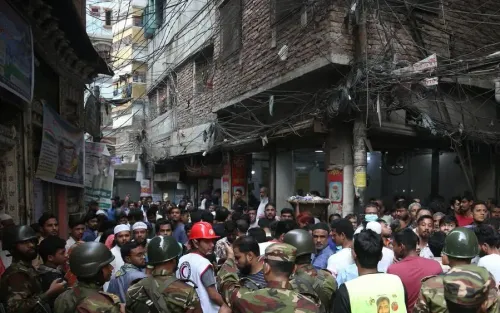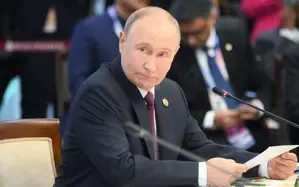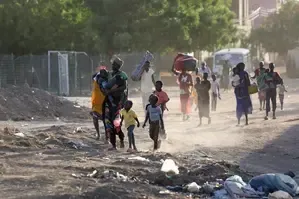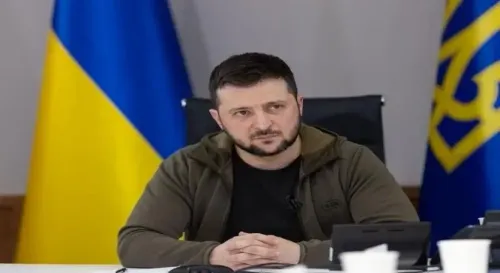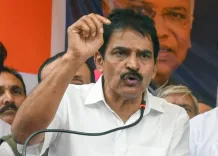What Significance Does PM Modi's Visit to Ghana Hold?
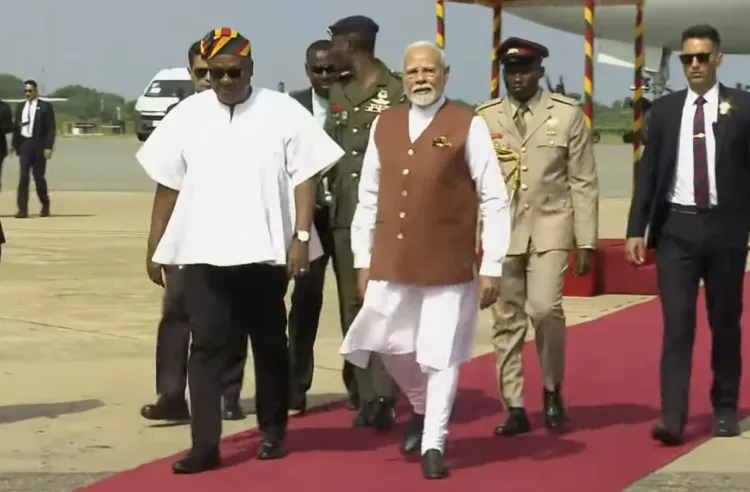
Synopsis
Key Takeaways
- Historic Visit: First Indian PM visit to Ghana in 30 years.
- Strengthening Ties: Focus on investment, health, and security cooperation.
- Engagement with Community: PM Modi to interact with local Indian community.
- Economic Cooperation: Discussions around boosting bilateral trade and investments.
- Defense and Health: Collaboration in vaccine development and defense sectors.
Accra, July 2 (NationPress) Prime Minister Narendra Modi has landed in Accra for a two-day visit, marking his inaugural bilateral journey to the African nation. This visit is also notable as it is the first by an Indian Prime Minister to Ghana in over thirty years.
In a remarkable show of hospitality, Ghana's President John Dramani Mahama greeted PM Modi at the Kotoka International Airport.
The Prime Minister received a ceremonial welcome at the airport, where the two leaders engaged in a brief conversation at the Jubilee Lounge.
“Ghana represents a key ally in the Global South and plays a pivotal role in both the African Union and the Economic Community of West African States. I am eager to engage in discussions that will fortify our historical ties and explore new avenues of collaboration, particularly in investment, energy, health, security, capacity building, and development partnerships. As fellow democracies, it will be a privilege to address the Parliament of Ghana,” PM Modi stated before his departure.
This visit to Ghana is the first stop on PM Modi's extensive five-nation tour, which will also include Trinidad and Tobago, Argentina, Brazil, and Namibia.
Later today, a delegation-level meeting is set to occur in Accra, where both nations will assess their bilateral relations and explore strategies to enhance cooperation. A one-on-one meeting between the Prime Minister and his Ghanaian counterpart will precede a banquet dinner in honor of PM Modi.
On Thursday, PM Modi is scheduled to address Ghana's Parliament and engage with the local Indian community, which numbers around 15,000 individuals.
“President John Dramani Mahama has been in office since January after a significant electoral victory, making this visit crucial. Early in his term, the Honorable Prime Minister's visit to Ghana will aid in maintaining and deepening our relationship,” remarked Dammu Ravi, Secretary (ER) at the Ministry of External Affairs ahead of the PM's arrival.
President Mahama has previously visited India, particularly for the 2015 India-Africa Forum Summit, and the two leaders have met on multiple occasions during various global events.
“India's relationship with Ghana is deeply rooted. Over the past seventy years, it has transformed into a multi-dimensional partnership. We championed Ghana's cause in the UN even before its independence in 1957, and we have consistently maintained a strong alliance in multilateral discussions on issues vital to the Global South,” stated the MEA Secretary.
The ministry has indicated that both nations will focus on enhancing economic cooperation as Ghana navigates through significant economic restructuring.
“Ghana has adhered to IMF conditions nearly 17 times. Thus, economic discussions will take precedence. The bilateral trade between India and Ghana is approximately $3 billion, favoring Ghana due to substantial gold imports. Indian investments in Ghana total around $2 billion, divided between private sector investments of about $1 billion and the remaining through lines of credit and buyer's credit. Our collaboration in capacity building under ITEC continues to strengthen,” the senior diplomat elaborated during a special briefing in New Delhi.
The Ghanaian leader is also eager to collaborate with India on vaccine development and establish a vaccine hub in Ghana, which would benefit both the country and the broader West African context. Discussions surrounding defense cooperation, critical minerals, and digital public infrastructure will also be key agenda items.
This visit, according to the MEA, reinforces the mutual commitment of both countries to enhance bilateral relations and strengthen India's participation within the Economic Community of West African States (ECOWAS) and the African Union.

